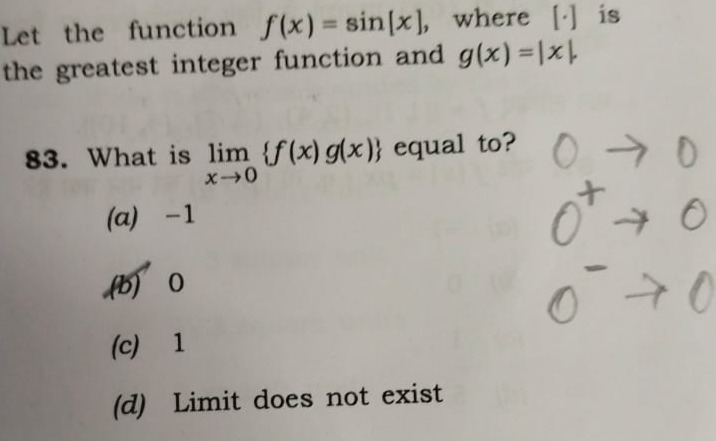Question
Question: Let the function $f(x) = \sin[x]$, where $[\cdot]$ is the greatest integer function and $g(x) = |x|$...
Let the function f(x)=sin[x], where [⋅] is the greatest integer function and g(x)=∣x∣.
What is limx→0{f(x)g(x)} equal to?

A
-1
B
0
C
1
D
Limit does not exist
Answer
0
Explanation
Solution
Solution Overview:
We are given:
f(x)=sin([x])andg(x)=∣x∣where [x] is the floor (greatest integer) function.
-
For x→0+:
- 0≤x<1 implies [x]=0.
- Hence, f(x)=sin(0)=0, and so f(x)g(x)=0⋅∣x∣=0.
-
For x→0−:
- −1<x<0 implies [x]=−1.
- Hence, f(x)=sin(−1) (a constant value),
- But g(x)=∣x∣→0.
- So, f(x)g(x)=sin(−1)∣x∣→0.
Since both one-sided limits equal 0, the overall limit is 0.
